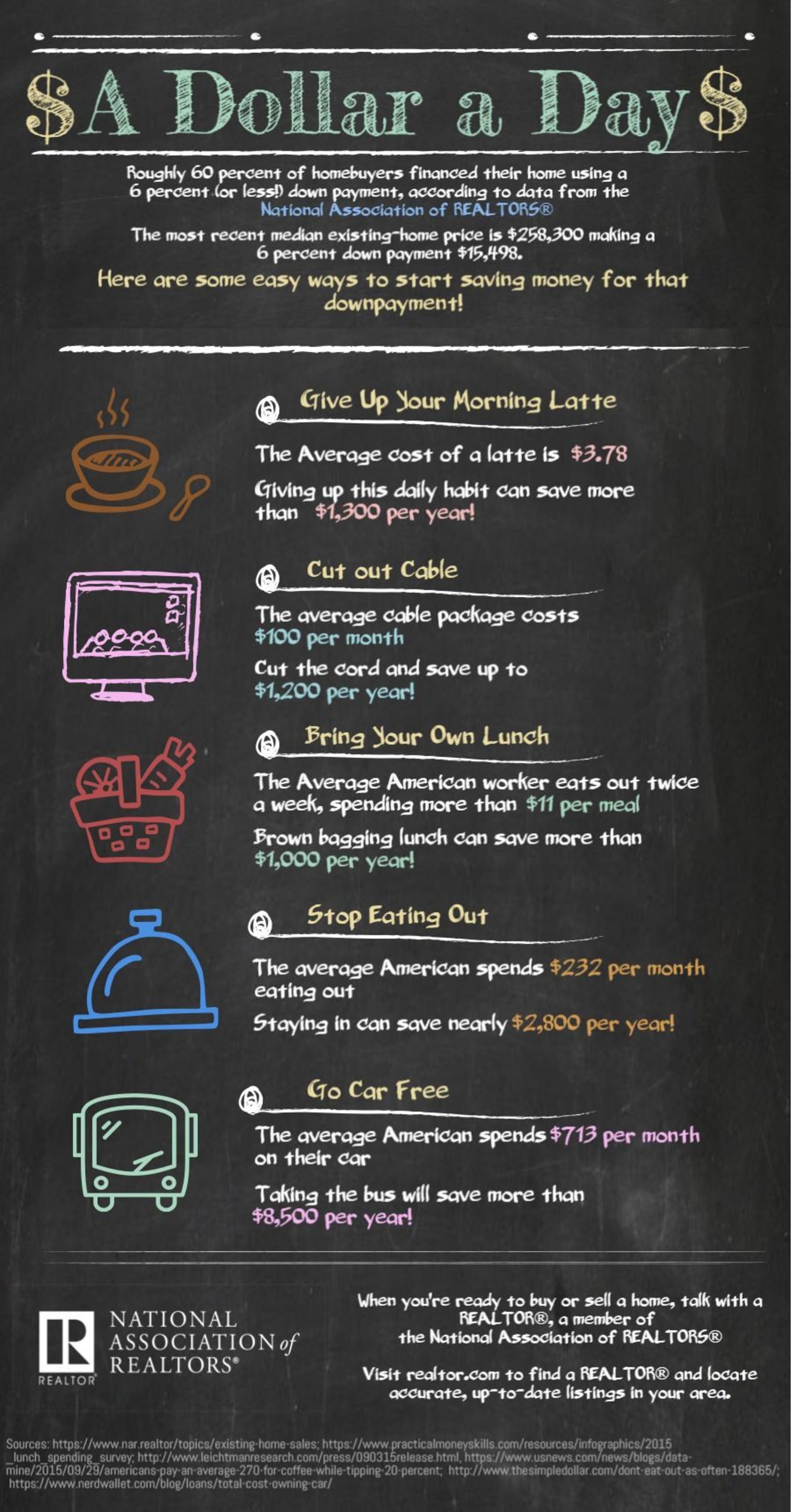A growing number of renters is sparking an entire community of 250 single-family detached homes for lease.
Infographic: 5 Down Payment Savings Tips
Sixty percent of homebuyers put 6 percent, or roughly $15,500, down on a median-priced house, according to the National Association of REALTORS® (NAR). Work toward that goal with these tips:
For more information, please visit www.nar.realtor.
For the latest real estate news and trends, bookmark RISMedia.com.
The post Infographic: 5 Down Payment Savings Tips appeared first on RISMedia.
Learning the ABCs of FICO
Most people don’t think too much about their FICO scores until they want to get a loan. No matter the type of loan you want—mortgage, new car—the higher your FICO score, the more likely you’ll be approved.
Understanding the five factors that make up your scores can be the first step toward improving them. Financial experts at the Motley Fool break down where your scores come from and suggest a few ways to improve them.
Know Where Your FICO Score Comes From
Payment History – Thirty-five percent of your score is determined by whether you pay your bills on time every month.
Credit Utilization Ratio – Thirty percent reflects your credit utilization ratio—the percentage of available credit you’re using. Using less than 30 percent of your available credit can help your credit score.
Length of Credit History – Fifteen percent reflects the length of your credit history. Paying bills consistently over time can definitely work in your favor.
New Accounts – Ten percent of your score is based on the number of accounts you open. Opening too many new accounts simultaneously suggests you’re highly reliant on borrowing to keep up with your expenses.
Credit Mix – Ten percent reflects the types of accounts you have. Credit bureaus make a distinction between your credit card accounts versus student loans, car loans, and mortgages.
Three Ways to Improve Your FICO
Pay off a chunk of your balance. If you carry a balance, pay off as much as you can, even if it means you must work a second job or sell off stuff you no longer need or use.
Ask for a raise in credit limit. If you’ve paid your bills consistently, this may not be difficult to get—and since your credit utilization ratio carries significant weight, that should help to improve your overall score.
Correct reporting errors. It’s estimated that 20 percent of credit reports contain errors. If you spot one on yours—such as an error in the amount you owe or a paid-off account not shown—getting it corrected will almost certainly boost your score. Review your FICO score for free once each year to make sure it’s accurate.
For the latest real estate news and trends, bookmark RISMedia.com.
The post Learning the ABCs of FICO appeared first on RISMedia.
YouTube’s Redesign Will Make Your Videos Look Better
Updates to the 12-year-old platform will soon mean no more black bars on the sides of your vertical smartphone videos. Learn what other features...
Where Homes Are Selling the Fastest
We all know most homes sold quickly this summer, but this map offers a visual of the average time it’s taking to complete transactions...
The Toughest Home Buyers You’ll Encounter
Some home shoppers are a joy to work with and others will make you want to scream. Here are three types to watch out for.
Don’t Let Sellers Get Overconfident
A severe inventory shortage may be allowing your clients to believe selling their homes will be quick and easy.
Scammers Harm Hurricane Rebuilding Efforts
Now that reconstruction is beginning following two storms’ massive paths of destruction through Texas and Florida, it's time to issue a...
‘Granny Flats’ Are Finding a Bigger Purpose
Some hope changing laws to allow more homeowners to build accessory dwelling units will increase property values and alleviate housing shortages...
What ‘Great Bones’ Really Means
You’ve probably heard the phrase a million times. But what do we really mean when we say a house has great bones?

